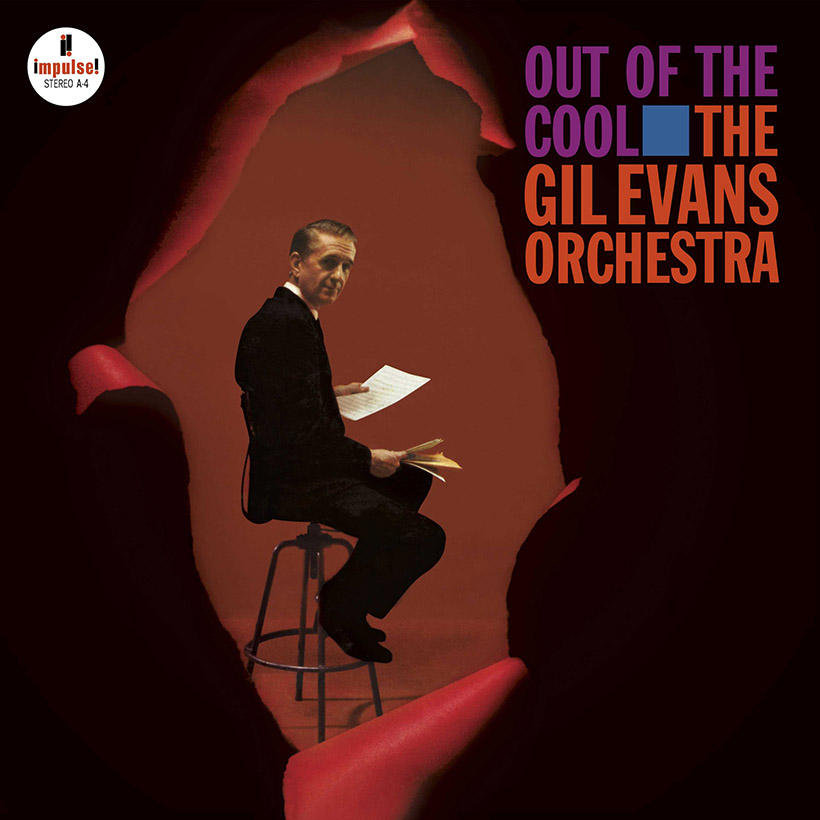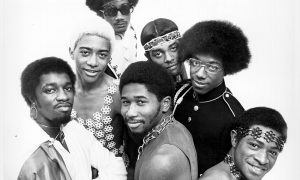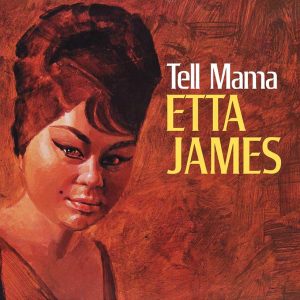The composer and arranger Gil Evans teamed with legendary trumpeter Miles Davis to make some of the greatest music of the 20th century; records like Birth of the Cool, Porgy and Bess, and Sketches of Spain are so canonical that no jazz record collection should be without them. But starting in 1960, Evans did music on his own, most notably the recording Out of the Cool, which is often overlooked but of enormous importance as well.
“As great as the classic Davis-Evans collaborations are – and they are absolutely deserving of their legendary status – I always think it’s a shame that Gil’s recordings under his own name are much less well-known,” says Darcy James Argue, a gifted composer, and arranger whose band Secret Society has created some of the most compelling big band music of the 21st century. “Out of the Cool is an excellent point of entry into that rich body of work.”
Buy Gil Evans’ Out of the Cool now.
Out of the Cool was recorded in November and December 1960 and issued in February 1961. It was one of the first four releases for the then-new label, Impulse! Although the imprint would soon become known as the home of John Coltrane and many others pushing the sound of jazz to its outer limits, in the early days, the label had different prerogatives. One of them was refining large ensemble music. Among the other early releases were classics like Oliver Nelson’s Blues and the Abstract Truth, which also offered a modern context for large ensembles, and Ray Charles’ Genius + Soul = Jazz, one of the legend’s finest recordings, and an album that featured members of Count Basie’s band.
Out of the Cool, however, was unique. Evans’s work with Miles had reset the template and expectations for what orchestral jazz could be and Out of the Cool took matters several steps further. In contrast to the finely wrought, pristine, impressionistic beauty of Sketches of Spain, Out of the Cool is limber and loose, even jaunty. The recording sessions came after a six-week run for the band at The Jazz Gallery in New York. Evans brought in minimal sheet music and arranged on the spot. This daring is well reflected in the music. It’s effortlessly arch at times, and slyly humorous at others.
Gil Evans’ influence on jazz today
Evans’s ability to create unique harmonies and bold rhythms have influenced many of the big bands of the present era, such as The Maria Schneider Orchestra, Brian Krock’s Big Heart Machine, and Secret Society. Most of these musicians discovered Out of the Cool as students. Schneider was studying at the Eastman School of Music when a record store clerk recommended it to her. She was already familiar with Evans’s work with Davis. She was floored by the orchestrations and harmonies. “He broke all the rules! He did all of these things that would get you an F if you did it in class, but they worked magnificently.” (Schneider would go on to work with Evans as a copyist and assistant before starting her own orchestra.)
Krock, meanwhile, arrived at Evans’s work through his love of Schneider’s music. “As I accumulated experience and grew musically, Gil Evans came to represent an ideal in my mind,” he said. “His obvious distaste – bordering on disdain – for ‘tried-and-true’ arranging solutions and his dogged determination to push his band out of their comfort zone became my own modus operandi. Once you become aware of Out of the Cool, it’s impossible to ignore.”
Composer Ryan Truesdell became aware of Evans’s music via the iconic collaborations with Miles Davis; he was so moved by Porgy and Bess that “he ran to the record store and cleaned out the Evans section.” Initially he needed a moment to get Out of the Cool. ”When I first heard [it], I was taken aback… It still sounded like Gil, but there was a freedom, a looseness, a vibe that I hadn’t heard in the earlier records.”
Once he warmed to it, though, the impact was immense; Truesdell went on to start The Gil Evans Project, which is dedicated to reviving and unearthing Evans’s music. “Gil’s writing on Out of the Cool showed me there can be freedom in large ensemble writing. If you take care in hiring the right people, you are able to place trust in the musicians to not only play the notes on the page, but use their collective experiences and individual voices to influence and elevate the music to a new, unique musical plane far beyond what the composer could ever have anticipated.”
The legacy of Gil Evans’ Out of the Cool
Krock agrees that the album has a unique historical importance. “I think Out of the Cool marked an important transition in Gil’s musical outlook – which, in turn, was a microcosmic symptom of the broader changes taking place in the world of jazz around 1960. Gil was moving away from tightly organized, crystalline arrangements towards a more spontaneous, rough-around-the-edges aesthetic.”
Argue, meanwhile, focuses on the granular aspects of the record, when asked about why the album is so special. “[It’s] full of unforgettable sounds and textures – the slap-tonguing and mouthpiece-popping on ‘Stratusphunk,’ the surreal mallet-struck strings on ‘Bilbao Song,’ the gradual accumulation of colors on the ‘Where Flamingos Fly’ ostinato – but the discourse about Gil’s mastery of orchestration and linear harmony sometimes obscures how much fun there is in his music.”
He continues, “I vividly remember the s–t-eating grin that crossed my face as I listened to the LP for the first time and encountered Gil’s delightful transmutation of Horace Silver’s piano comping on ‘Sister Sadie.’ Gil’s charts on ‘Stratusphunk’ and ‘Bilbao Song’ are two of the very greatest arrangements anyone has ever written for a big band. I’ve listened to them both thousands of times and still haven’t managed to unlock all of the secrets they hold.”




